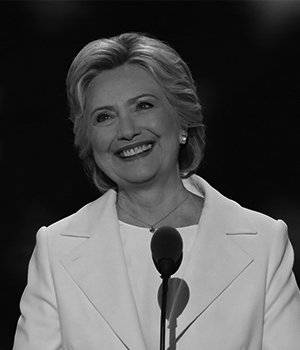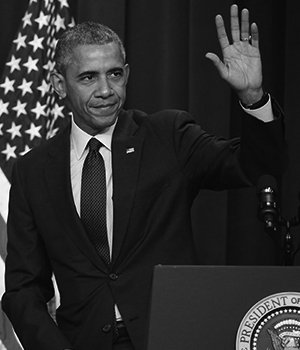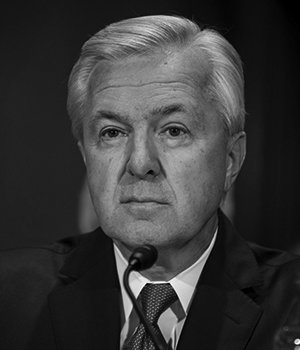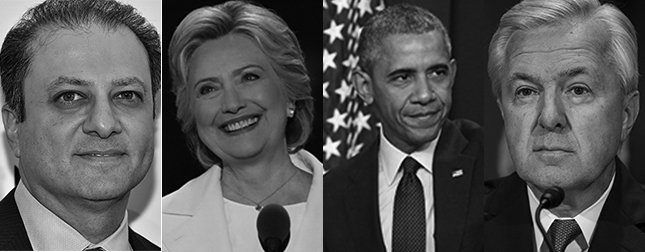Preet Bharara
2016 RANKING: 46

As U.S. Attorney for the Southern District of New York from 2009 to 2017, Bharara made Wall Streeters and public officials sweat. He brought more than 100 insider trading cases against erstwhile financial titans and investigated JPMorgan Chase over Bernie Madoff’s Ponzi scheme, forcing the institution to forfeit $1.7 billion, the largest forfeiture ever by an American bank. In 2013, Bharara even went after the Russian mob for laundering money through New York real estate holdings; due to previous cases against Russian agents, the Russian government announced earlier that year that it had banned him for life. Then, Donald Trump was elected president. Before he took office, Trump met with Bharara and asked him to stay on as U.S. attorney. But in March, the president reversed course, and attorney general Jeff Sessions demanded Bharara resign. When Bharara refused, the administration fired him. The power struggle came after Bharara reportedly began to think the president was attempting to undermine his independence as a federal prosecutor. At the time he was fired, Bharara’s office was said to be looking into stock trades made by the Trump administration’s secretary of health and human services, Tom Price.
Hillary Clinton
2016 RANKING: 11

After being handicapped—by just about everyone, whatever their political stripe—as a shoo-in for president of the United States, Clinton faced a bruising campaign. She was savaged by the left during the primary thanks to an insurgent campaign by senator Bernie Sanders, whose laser focus on economic inequality revealed her deep ties to corporate America and big banks. In the general election, she was pummeled by often false claims from alt-right mouthpieces such as Breitbart News and then-GOP candidate Donald Trump, whose sneering vitriol and charges of corruption, backroom dealing and frailty sowed further doubt about Clinton’s candidacy. She had real bona fides that should have insulated her: a successful tenure as secretary of state, a solid, although imperfect, track record in the Senate and deep connections on the left and in the business community. But she ultimately lost the election, despite winning the popular vote, due to a series of strategic missteps, failure to connect with white, working-class voters in the Midwest and—perhaps most consequentially—Russian meddling, which pumped fake news favoring the Trump campaign into the newsfeeds of millions of voters.

Barack Obama
2016 RANKING: 05

Obama didn’t lose power because it was taken from him or through some sort of downfall caused by poor decision-making. Rather, like many before him, he gave up power willingly at the end of two terms as president of the United States, an event—the democratic exchange of power—that remains remarkable in the arc of human history. Still, it was a bittersweet transfer for many. The contrast between Obama and his successor could not be starker. The nation’s first African American president, who spoke with such feeling and understanding about race in America, turned over power to a man often seen as insensitive to the issue. After spending eight years digging the nation out of the largest financial crisis since the Great Depression, restoring the economy to growth, returning people to employment and negotiating massive foreign deals—the Paris Agreement to fight climate change and the Trans-Pacific Partnership, the largest regional trade deal of all time—President Obama found himself replaced by an isolationist who quickly scrapped both deals and vowed to end decades worth of regulatory progress. Even Obama’s trademark achievement, the Affordable Care Act, granting health insurance to millions of uninsured, was on the chopping block. Nevertheless, even now, less than a year since the end of his administration, Obama’s legacy is clear: He will be remembered as a president who saved the economy—though perhaps too leniently—who sought to grant the American people good health—whether they like it or not—and who tried to heal racial wounds present since the founding of the nation.
John Stumpf
2016 RANKING: 17

Stumpf appeared to be the quintessential community banker. As the CEO of Wells Fargo he came across as appealingly folksy and well intentioned. And he had been very successful: Named CEO of the bank in 2007 and chairman in 2010, Stumpf helped Wells weather the financial crisis, becoming one of the largest banks in the world in the process. From the time he took over until the end of 2015, Wells Fargo stock rose 50 percent. This magazine ran a glowing profile of Stumpf in 2015. Then it all unraveled. In September of last year, the bank was hit with $185 million in fines when it was revealed that, under pressure to meet sales goals, low-level employees had opened more than 2 million fake accounts for Wells Fargo customers while key executives looked the other way. Stumpf was hauled in front of the U.S. Senate Banking Committee and House Financial Services Committee and raked over the coals by senator Elizabeth Warren, who claimed he personally made millions off of a “scam.” “You should resign…and you should be criminally investigated,” she said. In the end, Stumpf returned $41 million in compensation and resigned on October 12, 2016.







